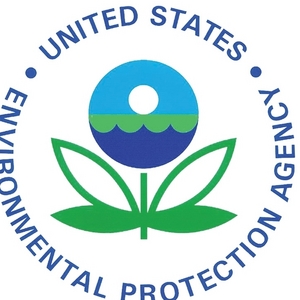US EPA approves EcoEngineers, Genscape importer RIN QAPs

June 21, 2013
BY Ron Kotrba
While RIN quality assurance programs (QAP) by several third-party auditors have been approved by U.S. EPA for domestic RINs—including EcoEngineers, Genscape, EM Biofuels, First Environment, Frazier Barnes & Associates/RIN Attest and Advisory Services, and Weaver & Tidwell—so far only two firms’ QAPs, EcoEngineers and Genscape, have been approved for biodiesel produced at foreign facilities and imported to the U.S.
“We know that Genscape’s certification program increases marketability and pricing power for domestic producers,” said Robert Barton, managing director at Genscape. “Now foreign producers can enjoy the same advantages.”
The QAP program as outlined in the EPA's Notice of Proposed Rule Making originally was written to cover only domestic production. Now RINs generated by importers on foreign production and RINs generated by foreign companies are covered by QAP programs by EcoEngineers and Genscape.
Advertisement
Advertisement
“We're very pleased with the direction EPA is taking,” EcoEngineers Partner and Senior Engineer James Ramm said. “The breadth of services we offer meets the needs of diverse players in the biofuel supply chain and the EPA is supporting our role as a validator of RINs.” EcoEngineers stated that it has more than 330 million gallons of biodiesel production capacity under management.
A RIN is a credit that a refinery, pipeline, local distributor or retail chain gets for purchasing biofuel from renewable fuel producers. RFS forms the basis of demand for ethanol, biodiesel and advanced biofuels in the country.
While there is no deadline for establishing final QAP guidelines, EPA has indicated it hopes they will be released this fall. The QAP program in its final form is expected to authorize third parties to certify the validity of RIN credits and protect from liability refiners that purchase the validated RINs.
Elements of the EPA proposal include ongoing monitoring of four key components outlined in the RFS program: feedstock, production process, renewable fuel, and RIN generation and separation.
Advertisement
Advertisement
The EcoEngineers process follows EPA guidelines with a review of feedstock purchases and feedstock origin. From there, the program follows a path that includes reactant verification, process energy review, mass balance and energy balance, and fuel quality review. It is able to offer batch level verification of biofuel production along with periodic audits and site visits. All tracking and management is done through a proprietary software platform monitored at both EcoEngineers offices in Des Moines, Iowa, and at the producer's site.
For both A-RIN and B-RIN producers, the Genscape QAP program incorporates a suite of compliance-based services including annual attestation, direct advice on RFS2 registration and compliance issues with a licensed CPA, RFS2 engineering review by an engineer licensed in the facility’s state, full ASTM 6751 panel test, and RFS2 quarterly report filing. The EPA requires that renewable fuel producers participating in a QAP program complete these compliance measures to maintain the integrity of the program.
The process for the EPA to verify a QAP Provider for fuel produced outside the U.S. requires the provider to prove their capacity to monitor and track the transportation of fuels with additional stringency as the imports typically move via rail or vessel. Foreign producers must register and receive EPA-issued company and facility identification numbers prior to the generation of any RINs for the fuel, which is the same process as that for a domestic producer. Foreign producers that generate RINs must also meet the requirements of Title 40 CFR §80.1166.
Related Stories
Reps. Mike Flood, R-Neb., and Troy A. Carter, Sr., D-La., on July 21 reintroduced the SAF Information Act. The bill directs the U.S. EIA to more explicitly include SAF data in its weekly and monthly reports.
The U.S Department of Energy Bioenergy Technologies Office, in partnership with the Algae Foundation and NREL, on July 21 announced the grand champion and top four winning teams of the 2023 - 2025 U.S. DOE AlgaePrize Competition.
The European Commission on July 18 announced its investigation into biodiesel imports from China is now complete and did not confirm the existence of fraud. The commission will take action, however, to address some systemic weaknesses it identified.
On July 18, U.S. EPA announced a reduction in force (RIF) as the agency continues its comprehensive restructuring efforts. With organizational improvements, EPA is delivering $748.8 million in savings.
The U.S EPA on July 17 released data showing more than 1.9 billion RINs were generated under the RFS during June, down 11% when compared to the same month of last year. Total RIN generation for the first half of 2025 reached 11.17 billion.
Upcoming Events










